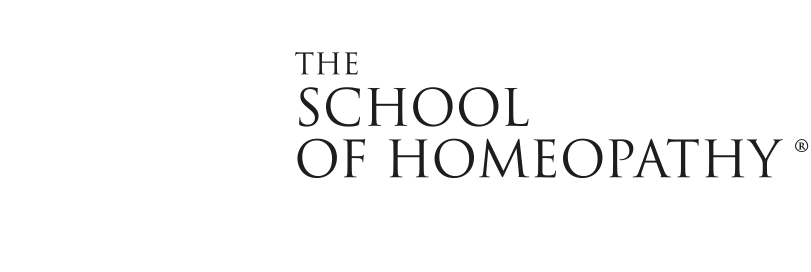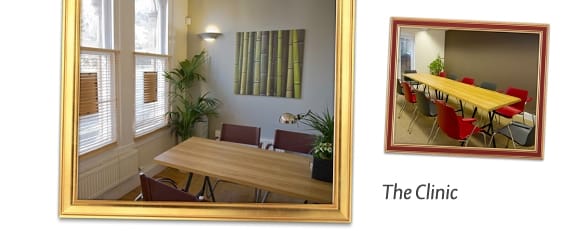


Homeopathy
Higher Diploma (Part 1)
Course Content
Beginning with the history of provings; how they are undertaken today; looking at the supervision process and beginning to start clinical supervision; vital sensation according to Rajan Sankaran; kingdoms classification, in particular the mineral kingdom; Jan Scholten and the periodic table; revision and extension of miasm classification in homeopathy.
Remedies Studied
Alumina, Aurum, Baryta Carb, Borax, Calc Carb, Coffea, Colchicum, Cicuta Virosa, Crocus, Lilium Tigrinum, Magnesium Carb, Mercury, Naja, Natrum Carb, Natrum Sulph, Platina, Veratrum Album.
Cases Studied
Sarah – assignment case
Insanity – analysis case
Alexis – analysis case
Imogen – example case
Sarah – analysis case
William – example case
Andrea – assignment case
Hilary – assignment case
Jean – assignment case
Jane – example case
Martine – example case
Harriet – assignment case
Jean – analysis case
Rosa – example case
Andrea – analysis case
Grace – example case
Hilary – analysis case
Molly – assignment case
Harriet – analysis case
Anna – example case
Jack – example case
Simon (Severe Dandruff) – example case
Flossie – assignment case
Laura (Locked Joints) – assignment case
Peter (Young) – example case
Molly – analysis case
Adrian – example case
Full detail of each month is given below with the aims and learning outcomes
3-1 September : Proving & Sensation
Aims
This month aims to further your study of the concept of the vital sensation and seven levels of consciousness as described by Rajan Sankaran. You will study Sankaran’s Sensation Method and how to use different techniques to relate his theory to case-taking and analysis. You will explore each of the seven levels at which a patient may communicate their symptoms and how to relate these to the Mappa Mundi. You will also take an in-depth look at what is involved in proving a remedy, studying the proving process, the pre-proving diary. You will be taught how to accurately record your own proving symptoms in a proving diary for use later in the course. In addition, you will study a group of related remedy themes and two homeopathic remedies and produce a full description of their states.
Learning Outcomes
At the end of this month you will be able to:
- Explain the term ‘Vital Sensation’
- Explain why the vital sensation helps in choosing an accurate remedy
- Relate the vital sensation to the Seven Levels
- Describe your general state daily in your pre-proving diary
- Write a mini synthesis and Mappa Mundi of a homeopathic remedy
3-2 October : Levels
Aims
This month aims to take you further into studying Sankaran’s seven levels in homeopathy. You will study the idea of susceptibility, paying special attention to the relation between this, proving and the seven levels. You will also take the proving substance and start the proving process, experiencing a new homeopathic substance first hand. You will share proving experiences with your proving supervisor and accurately record your proving experience in your proving diary.
Learning Outcomes
At the end of this month you will be able to:
- Explain ‘susceptibility’
- Relate susceptibility to the seven levels
- Relate susceptibility to the proving
- Analysis and cross-reference your proving experience with your proving supervisor
- Accurately record your proving experiences in your proving diary
3-3 November : Kingdoms
Aims
This month aims to introduce you to the different kingdoms in homeopathy. You will be taught how to differentiate between kingdoms in your analysis of a patient and how to identify characteristics of a kingdom to human behaviour. You will study and compare two remedies and further develop your case analysis skills through continued case work. You will also continue your work on the proving, sharing your proving experience with the group, your supervisor and the School and continue to accurately record it in your proving diary. You will also extend your study of materia media with the study of two related homeopathic remedies. Finally, you will study a further case with an emphasis on kingdoms.
Learning Outcomes
At the end of this month you will be able to:
- Explain and outline the kingdoms in homeopathy
- Outline characteristics of the three main kingdoms in relation to human behaviour
- Differentiate the common symptoms of two homeopathic remedies
- Analyse and reflect on a case with the added knowledge of the homeopathy kingdoms
- Analysis and cross reference your proving experience with your proving supervisor
- Accurately record your proving experiences in your proving diary
3-4 December : Supervision
Aims
This month aims to evaluate all you have learnt through the proving and proving supervision experiences. You will present your knowledge and skills gained through the proving, as well as what you thought of the whole process. You will also look at aspects of your own clinical practice by undertaking local market research and audit on how other homeopaths and alternative practitioners market themselves. This is the start of your own personal business planning for your practice. Finally, you will analyse a case using the method of a timeline.
Learning Outcomes
At the end of this month you will be able to:
- Accurately record your proving experience in your proving diary
- Evaluate and present your proving and proving supervision experience
- Analyse your proving experience symptoms and map them on the Mappa Mundi or similar
- Research how homeopaths market themselves in your local area
- Outline your own reasons for becoming a homeopath and compare with other local homeopaths
- Analyse a case using a timeline
3-5 January : Minerals & Business Studies
Aims
This unit aims to introduce you to study of the periodic table and its relationship to homeopathy and the materia medica. From the work of Jan Scholten you will look at how the periodic table can be broken down into seven series and eighteen stages and how this may help with your understanding of the Mineral kingdom remedies. You will then apply your knowledge of the periodic table to see how this could help in analysing cases. In addition, you will further develop your business plans by working on your own vision, values and brand idea for your practice. There will also be class discussions on marketing, finance and practice management. You will also review the case studied in the previous month to critically evaluate your own analysis and study a further case with an emphasis on Mappa Mundi and timelines.
Learning Outcomes
At the end of this month you will be able to:
- Outline how patterns can be identified in the series and stages of the periodic table and how these can help to define remedies from the mineral kingdom
- Discuss how three homeopathic remedies can be evaluated using the periodic table from a Scholten perspective
- Describe the differences between some remedies in different kingdoms
- Define the vision, values and brand idea for your business
- Analyse a case using Mappa Mundi and time line tools
3-6 February : Acutes & Business Studies
Aims
This month aims to consolidate the main aspects of setting up your own business as a homeopathic practitioner. Together we will peer review your brand, vision and value statements. Acutes are also explored in more detail, together with how to respond in certain first aid situations. In addition, the work on the periodic table will continue to include an understanding of the gold series. You will also review the case studied in the previous month to critically evaluate your own analysis and study a further case with an emphasis on polarities.
Learning Outcomes
At the end of this month you will be able to:
- Evaluate your personal business plan
- Consolidate the vision, values and brand idea for your business
- Critically analyse what to consider when treating first aid and acute situations
- Analyse remedies from the Gold series of the periodic table
- Analyse, explore and suggest a remedy for a case
3-7 March : Acutes contd.
Aims
This month's aim is to build on the acutes work from last month. You will continue with your study into acutes, by looking at cases in which acute symptoms arise during chronic treatment. You will look at different scenarios of this situation and present strategies for case management. You will also continue with the study of the mineral kingdom, paying special attention to the homeopathic remedies from Stage 2 of the periodic table. You will also review the case studied in the previous month to critically evaluate your own analysis and study a further case with an emphasis on dream analysis and childhood compensation.
Learning Outcomes
At the end of this month you will be able to:
- Analyse different scenarios in which acute symptoms arise from chronic treatment
- Critically review strategies to manage acute symptoms that may arise from chronic treatment
- Discuss how homeopathic remedies from Stage 2 of the periodic table can be evaluated from a Scholten perspective
- Analyse, repertorise and differentiate between remedies in a homeopathic case
3-8 April : Miasms Revisited
Aims
This month aims to review the miasms studied in Year Two and introduce a further six miasms. The latest concepts in miasmatic theory will be explored as well as how to differentiate between different miasms. You will look at how to identify characteristics from the different miasms in patients and compare this work with your knowledge of the stages in the periodic table. Lastly, you will share your thoughts on the clinic process, evaluating the pros and cons. You will also review the case studied in the previous month to critically evaluate your own analysis and you will study a further case using the sensation method.
Learning Outcomes
At the end of this month you will be able to:
- Identify the miasms added by Rajan Sankaran
- Indicate which miasms certain words and phrases might belong to
- Discuss personality traits of the miasms in homeopathy
- Describe each of the miasms currently used in homeopathy and relate them to the corresponding disease states
- Compare and contrast the miasms in different life scenarios
- Compare and contrast the miasms in relation to the 18 stages proposed by Scholten
- Analyse homeopathic remedies in respect to their associated miasms
- Analyse a case using the sensation method
3-9 May : Action & Reaction
Aims
This month aims to develop your understanding of Hahnemann’s ideas of action and reaction. With reference to paragraphs 63 – 67 of Hahnemann’s Oraganon you will critically review the concepts of similimum and palliation. You will continue your study of the Mappa Mundi by placing a further six homeopathic remedies on the map. In addition, you will apply your knowledge of the Mappa Mundi, Sensation Method and Kingdoms to analysing a case. Finally, you will look at writing a leaflet for your homeopathy practice. You will also review the case studied in the previous month to critically evaluate your own analysis and study a further case using the sensation method and Mappa Mundi.
Learning Outcomes
At the end of this month you will be able to:
- Explain the term ‘action and reaction’
- Discuss action and reaction as defined by Hahnemann in the Organon
- Explain how giving repeated doses of the similimum to a patient could have an antidotal action.
- Explain about the palliative effects of using remedies and/or drugs
- Criticallly review situations that could have palliative effects
- Analyse a case using a Mappa Mundi, as well as the skills learnt into Sensation and Kingdoms.
- Illustrate the placement of six homeopathic remedies in the Mappa Mundi
- Design and write a leaflet for your homeopathy practice
- Analyse a case using the sensation method and Mappa Mundi
3-10 June : Taking the Case Summary
Aims
This month aims to review all the case taking skills you have learnt to date. You will review how to analyse an individual case from the first consultation, perceiving what needs to be cured and how to assess the nature of a patient’s constitution. The homeopathic concept of prognosis will be described and the many factors that can affect prognosis explored. You will learn how to recognise your responsibilities as a homeopathic prescriber, including how to monitor a patient’s reaction to a remedy and management of a follow-up consultation. In addition, you will consolidate your knowledge of homeopathic philosophy and its main principles. You will also review the case studied in the previous month to critically evaluate your own analysis.
Learning Outcomes
At the end of this month you will be able to:
- Identify all the case taking skills you have learnt to date
- Assess the prognosis for a patient after observing the action of the medicine
- Explain the main factors that could alter a patient’s prognosis
- Analyse the requirements and factors for different case management scenarios
- Review your knowledge of homeopathic philosophy and principles
.jpg)
Homeopathy has changed my life, opened my eyes and healed me and those around me who have used it. The homeopathy course is life changing and I would recommend it to anybody who is looking for a greater understanding in life.
Rachel Melbourne, Graduate















